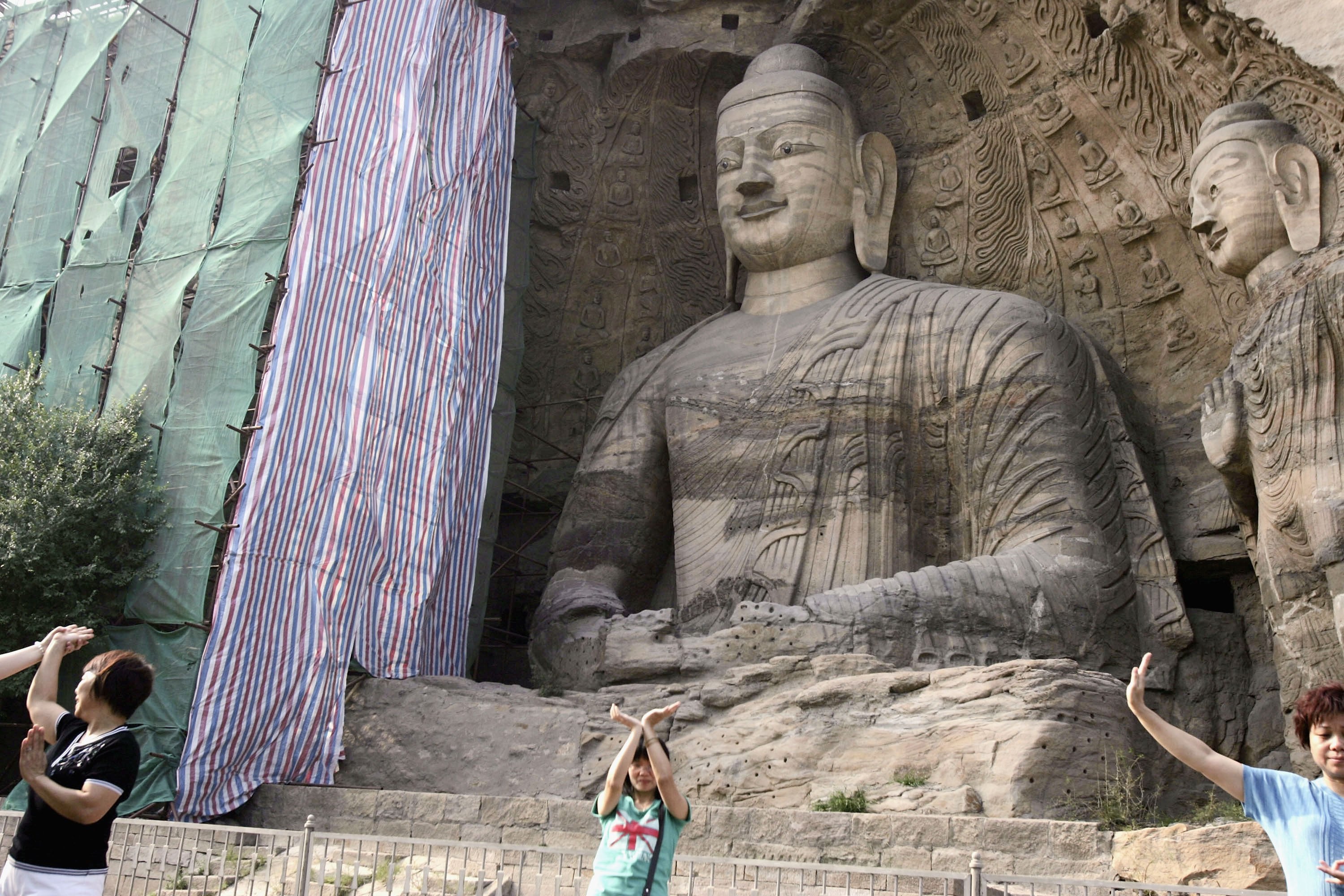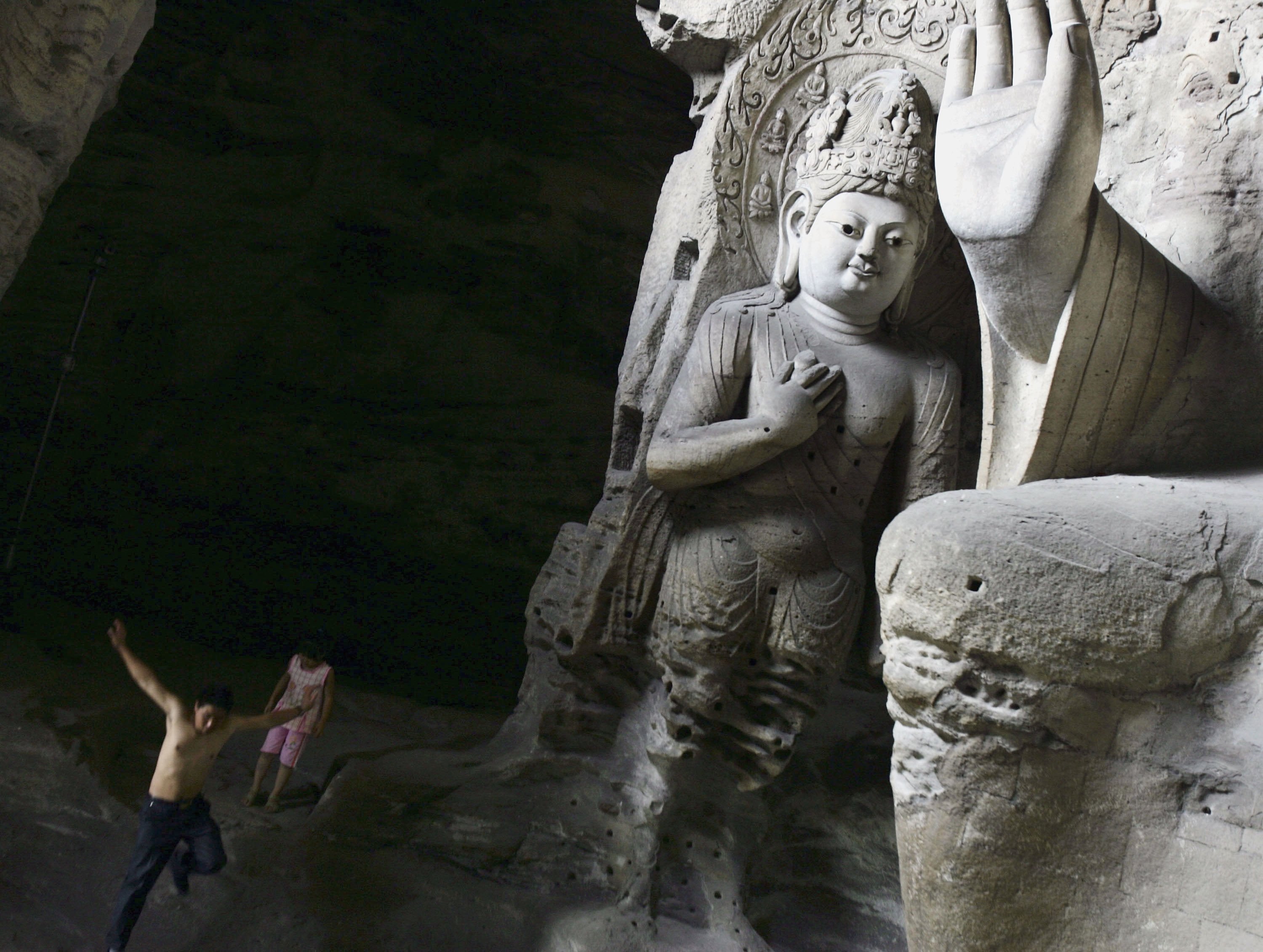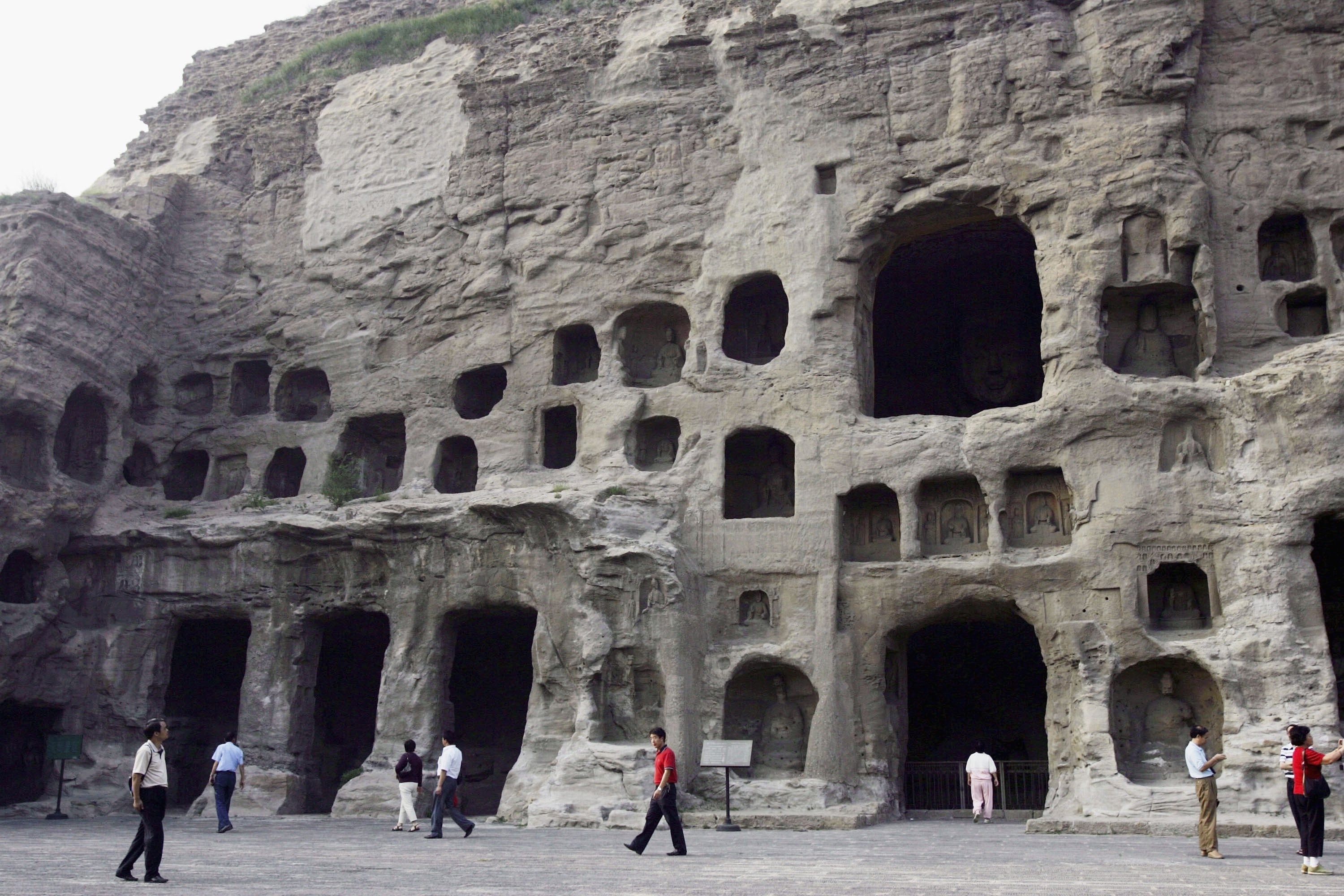China installs toilet timers at Unesco world heritage site: ‘Your time is counted’
Yungang Grottoes staff members say timers installed to cope with increase in number of visitors

A popular Unesco world heritage site in China now has timers installed in the restrooms that show the duration a toilet cubicle has been in use.
The Yungang Grottoes in Datong city of Shanxi Province, which millions of tourists visit every year for its 252 caves and 51,000 Buddha statues, is in the news for its digitised restrooms.
The installation of timers has been criticised by many people in the country who said it was to limit their usage of the restroom.
A video shared on Chinese social media and news websites showed digital timers installed above a row of toilets in a women’s washroom. Each cubicle showed the duration of the time the door had been shut, suggesting it was in use.

A staff member at the caves told the Xiaoxiang Morning Herald, a state-run local newspaper, that the new timers were installed to cope with an increase in the number of visitors for its innovative restroom management but not police the time spent in the toilet.
“They aren’t there to control the durations you could use the bathrooms,” the staff member was quoted by the newspaper as saying.
“It’s impossible that we would kick someone out [of the bathroom stall] midway. And we aren’t setting a time limit such as five or 10 minutes of how long one could use the toilets.”
A visitor to the historical marvel told the newspaper that they found the timers a “little embarrassing”, according to CNN.

“I found it quite advanced technologically so you don’t have to queue outside or knock on a bathroom door,” the visitor said.
“But I also found it a little bit embarrassing. It felt like I was being monitored.”
Another staff member told the Nanchang Evening News that the timers have been operational since 1 May this year and it was to ensure the “well-being of all guests in case some guests use the toilet for an extended period and an emergency occurs”.
Many people also took to social media and asked the need for timers at a tourist place and said that it was a misuse of money which could have been used for building more toilets.
“A tourist site isn’t an office – who would spend their time in the toilets? Is it really necessary?” said one Weibo user.
“Your time is counted!” said another user.
“Why don’t they just spend the money on building more washrooms?” said another.
More than 3 million tourists visited the Yungang Buddhist Grottoes in 2023, one of the biggest attractions in northern China. The Grottoes represents the outstanding achievement of Buddhist cave art in China in the 5th and 6th centuries.
However, it is not the first time in China that people have been outraged for the policing of their bathroom breaks. In 2020, a tech firm was blasted by social media users for installing digital timers above toilet cubicles at an office in Beijing.
Join our commenting forum
Join thought-provoking conversations, follow other Independent readers and see their replies
Comments
Bookmark popover
Removed from bookmarks